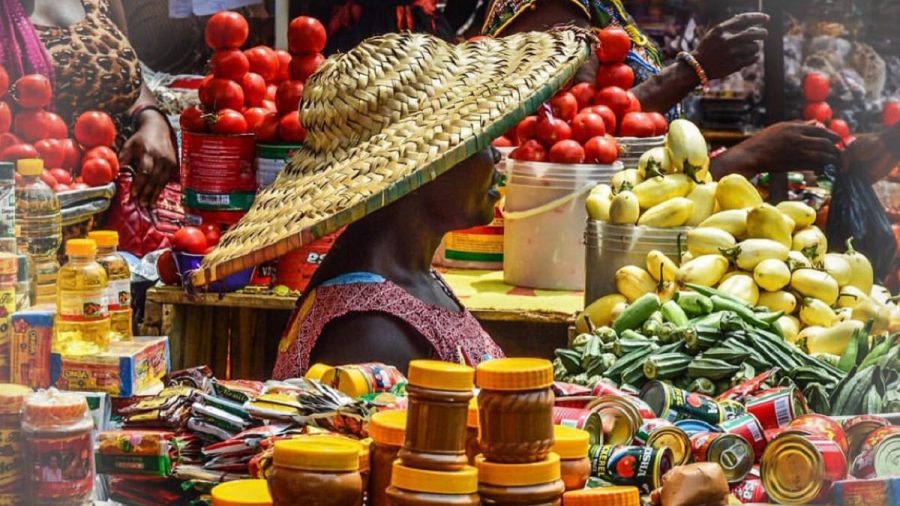
Strategies and Solutions
Nigeria is currently battling an unprecedented rise in the cost of goods and services leading to decreased purchasing power, thereby leaving many on the fringes of impoverishment. The Consumer Price Index (CPI) for the month of June 2024 at 34.19% represents the highest level of inflation recorded in more than a decade. At the same time, food inflation reached a peak of 44.7% year-on-year, marking an increase of 15.84 percentage points (y-o-y) from 24.8% in May 2023.
This increase in food inflation was primarily adduced to sharp rise in the prices of bread, cereals, potatoes, yam & other tubers, fish, coffee, tea, and cocoa. Prices of staples have risen by an average of 200 percent within the past year.
Households are cutting out non-essential spending habits and rationing foods; a result which could lead more people to an estimated population of 88.4 million people in Nigeria living in extreme poverty. The World Bank projects that the poverty rate in Nigeria will climb to 40 per cent by the end of 2024.
While so many policy analysts and economists opined the present challenge to have emanated from the floating of the Naira and removal of fuel subsidy in contrast to sticky wages and salaries, the stemming of the surging inflation remains elusive.
Susceptibility of Nigeria Economy
Nigeria is an import-dependent economy.To put it into perspective, Nigeria imports of goods and services as a percentage of GDP is 11.84%. A total of N1.9 trillion worth of food products were imported into the country in 2022, indicating a five percent rise compared to N2 trillion spent on food importation in 2021.
As a result of Naira’s depreciation, Nigerian importers are purchasing goods at prices that are already very high abroad leading to higher costs of goods.
Moment of Relief
One of the fundamental goals of a modern economic system is to keep prices of goods and services stable at rates that would not be detrimental to the economic system.
While the government would be right in taking steps to correct the anomalies of the past, citizens cannot afford to wait forever to feel the impact. The removal of petrol and electricity subsidies and the devaluation of the naira continues to take a devastating toll on businesses, lives, and livelihoods.
The deployment of compressed natural gas (CNG) buses nationwide, implementation of student loan and release of grains nationwide to sub nationals are plausible initiatives as these will help to minimize cost of transportation, affordability of tuition fees and combat food insecurity respectively.
Strategies to Mitigate Inflation
1. Monetary Policy Adjustments: The use of monetary policy tools to control inflation is one of the many ways to mitigate inflation. Just recently, the Central Bank of Nigeria increased the benchmark lending rate to 26.75% which influencesborrowing and spending. Higher interest rates can help reduce money supply in the economy, thereby curbing inflation.
2. Exchange Rate Stabilization:The dollar to naira exchange rate stability is crucial to enhance foreign exchange reserves and encourage foreign investments to strengthen the Naira. Since May 2024, the dollar to naira exchange rate have assumed some stability which can help organisations plan, thereby boosting investor confidence.
3. Boosting Agricultural Production:Nigeria’s government has raised more than $500 million to transform food production in Africa’s most-populous nation. Investing in the agricultural sector can help reduce food inflation. This includes providing farmers with better access to credit, modern farming techniques, and improved infrastructure for storage and transportation. Enhancing security in farming regions is also essential to ensure consistent production.
4. Social Safety Nets: Implementing social safety nets can protect the most vulnerable populations from the adverse effects of inflation. Conditional cash transfers, food assistance programs, and subsidized healthcare can provide relief to those most affected by rising prices.
Moving Forward
Taming surging inflation in Nigeria requires a multifaceted approach involving both short-term measures and long-term structural reforms. By stabilizing the exchange rate, boosting agricultural and industrial production, improving infrastructure, and maintaining fiscal discipline, Nigeria can navigate the challenges of inflation and set the stage for sustainable economic growth. Collaborative efforts between the government, private sector, and international partners are essential to achieving these goals and ensuring economic stability for the nation.
Looking ahead, the headline inflation rate is expected to remain elevated with a likely slowdown in the near term due to the base effect, the discontinuation of the Central Bank of Nigeria’s Price Verification system and the 150-day suspension of import duties on staple foods. However, the upside risks will likely prevail if infrastructural deficits, insecurity, low agricultural production, high input costs and rising energy costs are not proactively addressed.
The monetary policy stance is likely to remain restrictive in the coming months if the annualised inflation rates do not buck their upward trends. Meanwhile, caution must be taken as further monetary tightening would increase the cost of borrowing, discouraging domestic investments and stifling economic growth. On the other hand, a high policy rate is likely to attract foreign portfolio investments into the country in spite of the negative real returns on investment.

